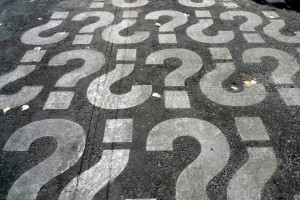“Let us pick up our books and our pens. They are our most powerful weapons. One child, one teacher, one book, and one pen can change the world. Education is the only solution.”
These are the stirring words of education activist Malala Yousafzai, uttered to the United Nations Youth Assembly on her 16th birthday, a date internationally recognized as Malala Day. This address was Malala’s first significant public appearance since being shot in the head last year by the Pakistani Taliban, who had banned girls’ education in Malala’s turbulent home region of Swat.
Is slacktivism a scourge?
Malala is a truly inspiring icon of youth of activism. While none of us desire our kids to be put – literally – in the line of fire for their beliefs, we do wish to see them become active citizens with a strong moral conscience.
Many people deride the trend of so-called ‘slacktivism’ among today’s youth – a lazy impersonation of activism that does not actually further a cause in any practical way, but rather serves simply to make the participant feel good about themselves. ‘Liking’ a status or sharing a video do not equate to real civic engagement, so the argument goes. Is slacktivism a scourge we should at pains to steer kids away from, ushering them off Facebook and into demonstration marches?
In actual fact, new research by the Pew Center suggests that if you’re politically active online you’re more likely to be politically active offline. “Social networking sites offer a space for individuals who are passionate about issues to share that passion with others,” the report reveals, “and their engagement with those issues often bleeds over into other aspects of their lives.“
Online activism propels offline action
Online campaigns like the Malala Day petition gain much of their momentum from social media. Sites like Facebook and Twitter are an undeniably powerful tool in organising social activism, particularly in the case of groups who don’t have access to traditional corridors of power – like teenagers.Take the example of 18-year-old Michelle Ryan Lauto who orchestrated a massive walk-out by high school students in protest at education funding cuts.
Social networking sites often provide a sense engagement with a cause greater than the individual, which can propel offline action, making teens more active and conscientious citizens. We can promote this constructive dimension of social media in our homes and schools by encouraging kids to participate in online campaigns they find meaningful. Not every 16-year-old can be as fearless and articulate as Malala, but social media can have a positive role in helping kids to become more active, concerned citizens.
At Fishtree, we believe that collaboration and secure social networking tools used in the right way can give students a voice and an opportunity to engage with the world’s community, and also greatly enhance the learning experience. Teachers, students and parents can connect, understand other cultures and opinions, and learn from each other. To find out more about how by collaborating and by working together we can make personalized learning available for everyone, please connect with us on Twitter, LinkedIn, and Facebook, email community@fishtree.com or just visit our website fishtree.com.
By Deirdre Kilbride
P.S. Teachers use Fishtree to plan lessons, find standard-aligned teaching resources, create assessments and see students performance, all in one place! If you’re a teacher, use Fishtree to prepare for your class and understand how well each student is learning. What’s more, it’s safe, secure, collaborative and easy! Try the next generation learning platform or contact us for a demo.
Image credits: Kevin Jarrett / CC BY 2.0
